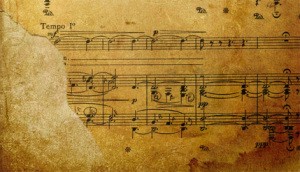 Readers of this blog will be familiar with the idea that voice-hearing has been linked to the processing of inner speech: the ordinary conversations that we have with ourselves in our heads. In a new collaboration, we are asking about the connection with analogous experiences relating to music: the phenomenon of hearing music when there is none playing.
Readers of this blog will be familiar with the idea that voice-hearing has been linked to the processing of inner speech: the ordinary conversations that we have with ourselves in our heads. In a new collaboration, we are asking about the connection with analogous experiences relating to music: the phenomenon of hearing music when there is none playing.
Lots of people have had the experience of getting a tune stuck in their head: a phenomenon known as an ‘earworm’. Earworms can be a particularly repetitive example of musical imagery, the ‘inner music’ that most of us can conjure up at will, and some of us get stuck with. For some people this can be a pleasant experience. They might be able to imagine whole songs or symphonies in vivid detail. Others sometimes hear music when no actual music is playing—something that would usually be termed a musical hallucination.
In a new study launched last week, we’re interested in finding out more about what all of these experiences feel like and how they might relate to one another. We’re also keen to explore how musical background and musical expertise shape peoples’ experience of inner music.
To achieve this, Hearing the Voice researchers have linked up with early music group The Clerks and researchers at Newcastle University to produce an online survey on inner music. The questionnaire is available here and we’re keen for as many people as possible to take part: whether you have had experience of earworms, other kinds of musical imagery, or even the experience of a musical hallucination.
At the centre of the collaboration, award-winning ensemble The Clerks have created a new programme entitled Phantom Voices, about the way the mind imagines music, and what happens when the imagined and the real seep into one another. The group premiered the piece on Friday 31 October as part of the Cambridge Festival of Ideas, and will be performing the piece again in London on 15 December (book tickets here). You can see the collaborators talking about the work in this video. The new work, like Hearing the Voice, is supported by an award from the Wellcome Trust.
It is important to remember that having unusual perceptual experiences is something that happens to many people. Experiences like hallucinations could occur for lots of different reasons and are not necessarily a sign of mental illness. If you would like to know more, have a look at our page on Looking for Support and our FAQs.
As part of our other ongoing studies, we are also keen to hear from people who have had other auditory hallucinations in the past (including hearing voices) in the absence of any psychiatric diagnosis. Please get in touch with Dr Ben Alderson-Day or Dr Victoria Patton via email or phone (+44 (0)191 3348163).
